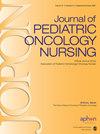Assessment of the Role of the Pediatric Nurse in Patient Education and Follow-up of Patients Receiving Oral Anticancer Treatment
IF 1.9
3区 医学
Q2 NURSING
引用次数: 4
Abstract
Objective: To assess the role of the pediatric nurse/advanced practice provider in patient education and follow-up of patients receiving oral anticancer therapy. Methods: Association of Pediatric Hematology/Oncology Nurses members were invited to participate in a survey that focused on the nurses’ roles in patient education of patients taking oral oncolytic agents. Data were collected via a 16-item questionnaire. Respondents included 197 nurses and advanced practice providers. Content analysis techniques were used to describe the qualitative data while Fisher’s exact test and chi-square test were used in the quantitative statistical analysis. Results: Seventy-one percent of respondents reported some type of involvement in patient education. Knowledge as well as comfort level improved as years of oncology nursing experience increased. Generally, policies and procedures are in place; however, nurses noted there is a need for improved oral oncolytic guidelines. Nurses also reported a need for improved and updated educational resources. Conclusion: While the development of oral oncolytic agents continues to rise, findings show a need to develop evidence-based guidelines for nurses, which include management of oral oncolytic dosing, adverse events, and safety issues.儿科护士在患者教育和口服抗癌治疗患者随访中的作用评估
目的:评价儿科护士/高级执业医师在接受口服抗癌治疗的患者教育和随访中的作用。方法:邀请儿科血液学/肿瘤学护士协会成员参与调查,重点关注护士在口服溶瘤药物患者患者教育中的作用。数据通过16项问卷收集。受访者包括197名护士和高级执业医师。定性数据采用内容分析技术描述,定量统计分析采用Fisher精确检验和卡方检验。结果:71%的受访者表示参与了某种形式的患者教育。随着肿瘤护理经验年数的增加,知识水平和舒适度也随之提高。一般来说,政策和程序是到位的;然而,护士们指出,有必要改进口腔溶瘤治疗指南。护士还报告需要改进和更新教育资源。结论:随着口服溶瘤药物的发展不断增加,研究结果表明,有必要为护士制定循证指南,包括口服溶瘤药物剂量、不良事件和安全问题的管理。
本文章由计算机程序翻译,如有差异,请以英文原文为准。
求助全文
约1分钟内获得全文
求助全文
来源期刊
CiteScore
3.10
自引率
0.00%
发文量
0
审稿时长
>12 weeks
期刊介绍:
SPECIAL PATIENTS NEED SPECIAL NURSES
Caring for children with cancer is one of the most technically and emotionally difficult areas in nursing. Not only are you dealing with children and adolescents who hurt, you must reassure and educate families, balance a multitude of other health care professionals, and keep up with ever-changing nursing practice and care. To help special nurses stay aware of the newest effective nursing practices, innovative therapeutic approaches, significant information trends, and most practical research in hematology and pediatric oncology nursing, you need the Journal of Pediatric Oncology Nursing.
The journal offers pediatric hematology, oncology, and immunology nurses in clinical practice and research, pediatric social workers, epidemiologists, clinical psychologists, child life specialists and nursing educators the latest peer-reviewed original research and definitive reviews on the whole spectrum of nursing care of childhood cancers, including leukemias, solid tumors and lymphomas, and hematologic disorders. JOPON covers the entire disease process--diagnosis, treatment, recovery, and survival, as well as end-of-life care.
Six times a year, the Journal of Pediatric Oncology Nursing introduces new and useful nursing care practice and research from around the world that saves you time and effort. Just some of the spirited topics covered include:
Cancer survivorship including later-life effects of childhood cancer, including fertility, cardiac insufficiency, and pulmonary fibrosis
Combination therapies
Hematologic and immunologic topics
Holistic, family-centered supportive care
Improvement of quality of life for children and adolescents with cancer
Management of side effects from surgery, chemotherapy, and radiation
Management of specific symptoms/diseases/co-infections
Medication tolerance differences in children and adolescents
Pain control
Palliative and end of life care issues
Pharmacologic agents for pediatrics/clinical trial results
Psychological support for the patient, siblings, and families
The dynamic articles cover a wide range of specific nursing concerns, including:
Advanced practice issues
Clinical issues
Clinical proficiency
Conducting qualitative and quantitative research
Developing a core curriculum for pediatric hematology/oncology nursing
Encouraging active patient participation
Ethical issues
Evaluating outcomes
Professional development
Stress management and handling your own emotions
Other important features include Guest Editorials from experts in the discipline, Point/Counterpoint debates, Roadmaps (personal insights into the nursing experience), and Proceedings and Abstracts from the annual Association for Pediatric Hematology/Oncology Nurses (APHON) conference.
Your special patients need special nurses--stay special by subscribing to the Journal of Pediatric Oncology Nursing today!
This journal is a member of the Committee on Publication Ethics (COPE).

 求助内容:
求助内容: 应助结果提醒方式:
应助结果提醒方式:


